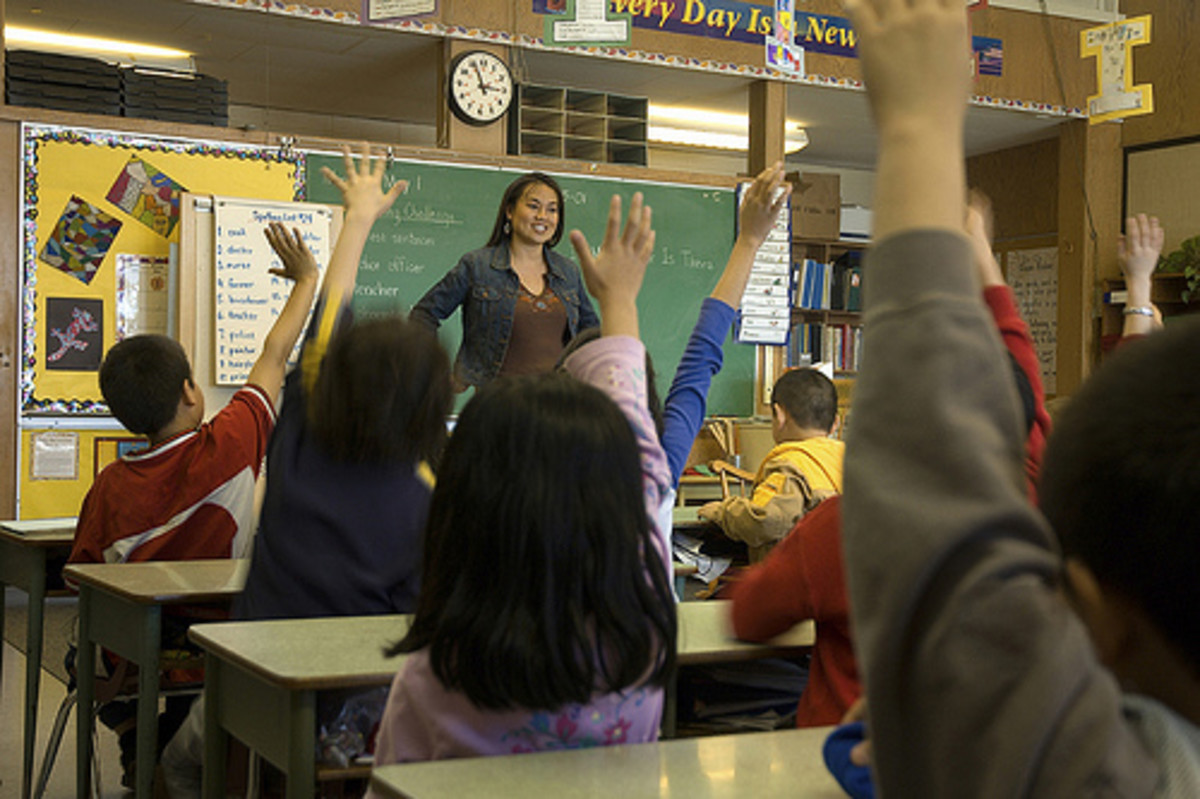Advice for Parents & Educators

The Concept of Education
Education has always played an important role in shaping the destiny of our children. Infact the progress and development of a society depend on its educational system. It should be a befitting system, focused on its needs, help in nourishing the inbuilt talents of the younger generation. It should also address the individual and collective needs of the society. Thus the educational system should:
* Help students understand their strengths and weaknesses.
* Help them understand their purpose of life.
* Help them understand the relationship with human beings and the Creator.
* Help students understand their responsibilities towards fellow human beings and the country.
* Fulfill the needs of the society.
* Help educators become mentor and trainer.
* Bring about changes in accordance with the changing situations.
* Become a direct relevance to the society and every part therein…the education, the students, the educators, the parents and patrons…should have roles and responsibilities that appear to be in direct communion with the country and the society.
The effective implementation of such an educational system rests on the shoulders of those who are at the helm of affairs but heavily relies on educators. No system is perfect unless the shoulders that carry are strong enough to understand its true essence and implement in accordance with its spirit.
With this in view, we can always put thrust on quality education and children to be educated in its true spirit. Here pass, fail, distinction and merit…does matter but what matters most is the intellectual and moral development of the students and an upsurge of the advancement of the educational system and the educators. Instead of focusing on the failure or success of the students the issue has to be addressed as a whole.
Advice for parents and educators

Advice for Parents
1) The Purpose of education should be made clear - At the outset our children should know the purpose of education. Their perception about education determines their future, if they understood it with all its comprehensive details, their approach reflects the same and they try to apply themselves harmoniously. Shallow objectives of education and its loose definition will never allow our children to be genius with high intellect and wisdom.
2) Regards to Parents & Educators - The important agencies that help a child learn are parents and educators. Its visualization is quite important; our children should be taught the dignity and status of both parents and educators, without which they can never reach to the true essence of education, neither the teaching of an educator nor the admonition of parents will prove to be beneficial for them.
3) Children should also be taught to be an adherent of the limitations of training and mentoring - Here a line of demarcation between "who’s right and who’s is not", should be drawn clearly. The methods of mentoring and nurturing of parents and teachers should not clash. Rather, it should be harmonious. For which a mutual coordination between the two is of prime importance. Therefore, our children should be trained in a way that they get a fair amount of guidance both from parents and educators.
4) Study and Preparation not just for Exams - Never allow your children to prepare or to study just for the sake of exams or tests. This will have an adverse effect over their memory power. The time being studies facilitate to remember things for a shorter duration of time later on studied lessons will be a thing of the past for them. When required to study the same subject, it appears all new, thus resulting in a kind of hatred or dislike towards it. Preparation should always be for knowing the subject and delving with the details of it.
5) Enjoin good - teach your child to form a pulsating relation with virtues. Teach him in a way that he tends to be receptive to learning. Have a keen observation and see how far your child’s personality is characterized by virtues like patience, determination, discipline, hard work, truth, honesty, respect, self-less service.
6) Forbid evil - it should be made quite realistic and pragmatic for the children to adhere to forbidding evils. Whatever may be the nature of evil, they should be trained in a way that their overall attitude must be a deterrent to the very existence of evils. Look at your child how far his personality is void of vices like, indiscipline, laziness, niggardliness, backbiting, negativity, disrespect etc.
7) Patience – Sometimes impatient attitude towards learning results in child’s disinterest and dismal performance. Here, patience should be taught. It’s a key to reliable progress. If the children are taught to be patient and determinant for their studies and preparation, it will be a great asset for them; unarguably their consistency will result in outstanding performance.
8 ) Ensure consistency - it should be made mandatory for the children to stick to a disciplined plan. Starting with morning activities to the closing ones in the night, a child should depict precise consistency. Regular to the school, disciplined in the classroom, productive usage of the leisure periods, healthy involvement in co-curricular activities, back to home soon after the classes are over, involvement in sports activities, completion of homework, healthy eating habits, going early to bed…… Though these are routine activities but when performed with consistency the child gets the due advantage of developing the required traits for an excellent academic records and a disciplined life thereafter. The parents and educators have a great say in ensuring such a consistency among the little ones.
9) No immodesty - During this period success and achievements are bound to happen. We should make our children humble to their success. “And miles to go before I sleep” kind of attitude should be developed so that no success or achievements can push them back with a sense of pride and overconfidence.
10) No Negative Traits - There should be a keen observation with regard to the habitual development in the children. Due to absence from home and involvement with friends of varied nature, they might develop one or the other kind of negative traits, such as lies, deceptions, backbiting, arrogance, etc. Parents should make it clear through their anger and corrective-gestures whenever any of the negative traits come into focus that their behavior is not going to be tolerated any more. The moment a child notices the displeasure of parents over his one or the other negative traits, he tries to refrain. Thus the timely displeasure itself acts as a reliable corrective measure.
11)Make your child an embodiment of humane values - soft spoken, kind hearted, helping nature, sweet dialect, and consolable gesture….these positive traits will articulate your little child to a giant genius in the future. A timely advice, a situational admonition and a keen observation of their routine will surely help in making their personalities an epitome of the human values.
Why do you still remember your teacher?
Do Schools Kill Creativity

Advice for Educators
A child has a constant agency for his intellectual and moral development in the form of an educator. A child spends much of his time with an Educator; the healthy development in a child’s overall behavior depends on an educator’s approach towards him. I would prefer for Educators:
1) Understanding of the responsibilities - educator’s responsibilities are enormous, doesn’t restrict to teaching and completing the syllabus. The responsibilities include a complete awareness about the self, a fair understanding of student’s mind, focus on the overall development, and individual attention as per the students’ progress.
2) Understanding of a student’s mind - this is the first step towards shaping the student’s mind. The mindset and the learning abilities vary drastically, treating all the children equally can be morally good, but for their academic excellence individual attention is must.
3) Dealing with the subject - a subject for an educator should be a challenge. An educator should not have 20 years of experience of teaching his subject rather he should have 20 years of experience of teaching his subject with innovative style and creative approach. The educators approach towards his subject largely decides student’s understanding. If an Educator is a master of his subjects, her pupil will also be his replica.
4) Nourishment of talents - a teacher act as a scanner for her pupil, he is well aware of in and out of the students. Based on his observation, knowledge and approach he should strive to nourish the talents. Learning, listening, pondering, writing, understanding, discipline, memorization….these qualities should develop in proportion with the completion of the syllabus.
5) Making them aware of their hidden talents - students generally remain unaware of their potential and inbuilt talents. They are absolutely like a plain paper. Through curricular and co-curricular exercises an educators become aware of the strengths and weaknesses of his students, based on his understanding of the situation and the individual and collective needs, he should try to give right direction and suggest pragmatic ways of their utilization so as to articulate strengths into a charismatic personality and annihilate all forms of weaknesses.
6) Expansion of the learning atmosphere - a good educator’s should always try to expand the learning environment. It doesn’t restrict to the four walls of a classroom, rather the lessons taught, the inputs given must bore in student’s mind to look at the things wherever he goes, and ponder over the things taught. In short an educator should make her pupil stand on their toes to put things into practice which have been taught and understood. Such a stretchy learning atmosphere will surely result in an organic relationship between students and the educators.
7) Teaching wisdom – believe it or not a student reflects her educators intellect. If an educator is wise enough, her pupil will get the required wisdom from him. Merely sticking to the boundary wall of a subject and a stereotype of teaching will never allow for educator’s to be intellectually developed or the students to learn something new and unique from him. An educator should transform his intellect to the students so that they understand their subject in accordance with its spirit not in view of scoring marks or bettering in exams.
8) Preparation for the lessons - for an educator every lesson should appear new whenever he is prepared to teach. The preparation must always be with unique style and ideas. Things will appear easy for the students if they are taught with a different approach. It all depends on how well an educator goes through the lessons and its minute details in order to make it easier for her pupil.
9) Discussion with the colleagues - it is highly appreciable if there is an atmosphere of mutual discussion on varied subjects between the educators. Mutual discussion always helps in understanding the situation and important issues as it portrays a mirror in front of the persons involved in the discussion. One can put across things like difficult or easiest aspects of the subjects, student’s receptiveness, ideas for preparation, present developments with regard to education and educational system etc, for mutual and fruitful discussions.
10) Self-development - the self-development of an educator must be directly proportional to her pupil’s growth or even more, say with regard to the flow of time. The way a child develops with his age and intellect, an educator should also. The intellectual, cultural, scientific and spiritual development of the educators is must, without which their outstanding performance and excellent progress of the students would just be a mirage.









